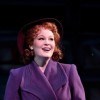![Brecht and his theatre [i_260] Brecht and his theatre](http://www.actorhub.co.uk/wp-content/uploads/2012/06/Bertolt_Brecht.jpg)
Photo Credit: Bundesarchiv via cc
Brecht was one of the most influential theatre practioners and pioneering figures of the 20th century. Not only did he make significant contributions to dramaturgy and theatrical production but he also inspired many theatrical minds and styles since then. He was both playwright and producer/director of his own, and other peoples plays. He also wrote extensively on dramatic theory. Brecht and his fellow collaborator and wife, Helene Weigel toured with their post war theatre company, The Berliner Ensemble, who not only entertained but educated the audiences. His work with the Berliner Ensemble beagn in 1949 and it’s aim was to be was wholly didactic.
Brecht’s Beginnings
![Brecht's beginnings [i_261] Brecht's beginnings](http://www.actorhub.co.uk/wp-content/uploads/2012/06/Bertolt-Brecht-at-OCTOBERFEST-Water.jpg)
Art is not a mirror held up to reality but a hammer with which to shape it.
Bertolt Brecht (Eugen Berthold Friedrich Brecht) was born in 1898 in Augsburg, Bavaria which is about 50 miles northwest of Munich. His mother had a great influence on him and taught him to read the bible, something that would have an impact on him and his writing throughout his life. He drifted towards the literary arts at an early age, writing poetry as a boy and even had a few poems published in 1914. His mother also inspired him with the “dangerous image of the self-denying woman” that recurs in his drama and writings.
Another great influence was Caspar Neher, who he met at school in Augsburg. Together they formed a lifelong creative partnership, Neher designing many of the sets for Brecht’s dramas and helping to forge the distinctive visual iconography of their epic theatre pieces.
From July, 1916, Brecht’s newspaper articles began appearing under the name ‘Bert Brecht’. The first world war broke out when Brecht was 16, at first he was enthusiastic about the war but soon changed his mind when he saw his classmates “swallowed by the army”. On his father’s recommendation, he registered with a medical course at Munich University in 1917. It was there that he studied drama and came into contact with Arthur Kutscher, who inspired in the young Brecht an admiration for the iconoclastic dramatist and cabaret-star Wedekind.
Brecht and the Theatre
![Brecht and theatre [i_264] Brecht and theatre](http://www.actorhub.co.uk/wp-content/uploads/2012/06/brecht-and-theatre.jpg)
His studies were interupted in 1918 as Brecht was drafted into military service, only to be posted back to Augsburg as a medical orderly in a military VD clinic and then the war ended a month later. Some time in either 1920 or 1921, Brecht took a small part in the political cabaret of the Munich comedian Karl Valentin. Brecht’s diaries for the next few years record numerous visits to see Valentin perform. Brecht compared Valentin to Chaplin, for his “virtually complete rejection of mimicry and cheap psychology”. Valentin was one of Brecht’s chief influences as he watched him perform his clowning sketches at a local beer hall. Valentin did short sketches in which he played refractory employees, orchestral musicians or photographers, who hated their employers and made them look ridiculous.
Brecht’s first full-length play, Baal was written in 1918, followed by his second major play, Drums in the Night, in February 1919. This was the first of Brecht’s plays to be performed, and his theatrical theories had, apparently, already begun to take shape. It was then in 1922 that Brecht came to the attention of an influential Berlin critic, Herbert Ihering, who was quoted to saying: “At 24 the writer Bert Brecht has changed Germany’s literary complexion overnight….he has given our time a new tone, a new melody, a new vision.” That same year, the promising young dramatist married the opera singer and actress Marianne Zoff. Their daughter, Hanne Hiob, born in 1923, would become a famous German actress.
Brecht in Berlin
Our theater must stimulate a desire for understanding, a delight in changing reality. Our audience must experience not only the ways to free Prometheus, but be schooled in the very desire to free him.
In 1924 Brecht moved to Berlin, a move he deemed necessary to continue his dramatic career. During the next few years, Brecht produced a string of well-received plays, the most popular of which was probably The Threepenny Opera, which he adapted from John Gay’s The Beggar’s Opera along with composer Kurt Weill. The Threepenny Opera would go on to become the biggest theatrical hit in Berlin during the 1920s and helped lead the way in a worldwide resurgence of the popularities of musicals in general.
In 1927, he had begun to study Karl Marx’s Das Kapital, and by 1929 he had embraced Communism. These political beliefs would soon become evident in his plays as well. Another Brecht and Weill collaboration, The Rise and Fall of the City of Mahagonny, caused an uproar when it premiered in Leipzig in 1930 with Nazis protesting in the audience.
In 1929, Brecht married Helene Weigel after he had divorced his first wife, Marianne Zoff in 1927 who had alreadt borne him a son, Stefan. The new couple also had a daughter, Barbara who, like Brecht’s other daughter, would go on to become an actress also. In February 1933, however, Bertolt Brecht’s career was suddenly and violently interrupted as the Nazis came to power in Germany. Brecht fled with his family to Prague. His books and plays were soon banned in Germany and those who dared stage his plays found their productions unpleasantly interrupted by the police.
Brecht traveelled around from Prague to Vienna to Zurich to the island of Fyn to Finland, where he lived for a while in Villa Marlebäck as a guest of the Finnish author Hella Wuolijoki. During this period of exile, Brecht awaited a pending visa to the United States, but he kept himself busy by completed the plays Mother Courage and her Children (1939), The Good Person of Szechwan (1941), and The Resistible Rise of Arturo Uri (1941).
Brecht in America
In May of 1941, Brecht finally received his U.S. visa and relocated to Santa Monica, California, where he attempted to become a Hollywood screenwriter, but his unusual concepts were dismissed by Hollywood producers who couldn’t seem to grasp his artistic visions. His only successful Hollywood film was Hangmen Also Die (1943). The money he made from this film allowed him to write The Visions of Simone Marchand, Schwyk in the Second World War and his adaptation of John Webster’s The Duchess of Malfi.
Unfortunately, Brecht’s stay in America would not be as successful or as lengthy as he might have hoped. In 1947, during the years of the “red scare,” the House Un-American Activities Committee called the playwright to account for his communist activities. On October 30, 1947, he appeared before the committee, wearing overalls, smoking a cigar and cracking jokes. Although he outwitted his investigators with half-truths and skilful innuendos, he feared the irrational political climate, and shortly after his testimony took a plane to Switzerland. He didn’t even wait to see the opening of his play Galileo in New York.
Brecht’s Later years
On October 22, 1948, after 15 years of exile, Bertolt Brecht returned to Germany, settling in East Berlin where he was welcomed by the Communist cultural establishment. In 1954 he was rewarded with his own theatre–the Theater am Schiffbauerdamm. Brecht wrote very few plays in his last years in Berlin, none of them as famous as his previous works, but he wrote some of his most famous poems during these last years, including the “Buckower Elegies.” In 1955, Brecht received the Stalin Peace Prize. Unfortunately the following year, he contracted a lung inflammation and died of a heart attack on August 14, 1956.


![newsletter_application [p_2157/i_2161] newsletter_application](http://www.actorhub.co.uk/wp-content/uploads/2014/07/newsletter_application.jpg)
![red_texture_write_for_us [p_2221/i_2222] red_texture_write_for_us](http://www.actorhub.co.uk/wp-content/uploads/2014/09/red_texture_write_for_us.jpg)
![550x240_advertise_here_ad [p_19/i_1902] 550x240_advertise_here_ad](http://www.actorhub.co.uk/wp-content/uploads/2014/02/550x240_advertise_here_ad.jpg)



![The Acting CV Top Tips [p_2184/i_2185] Top Tips to help you prepare your acting actor CV_240](http://www.actorhub.co.uk/wp-content/uploads/2014/08/Top-Tips-to-help-you-prepare-your-acting-actor-CV_240-100x100.jpg)
![An English Woman in New York Part III [p_2572/i_2579] laura_hooper_Part_3](http://www.actorhub.co.uk/wp-content/uploads/2015/07/laura_hooper_Part_3-100x100.jpg)
![Pantomime Audition Songs [p_342/i_346] panto_dame_240](http://www.actorhub.co.uk/wp-content/uploads/2012/08/panto_dame_240-100x100.jpg)
![Darling, are you Resting? [p_2422/i_2425] That Good Old Resting Problem_240](http://www.actorhub.co.uk/wp-content/uploads/2015/01/That-Good-Old-Resting-Problem_240-100x100.jpg)

![What makes the best .... Lighting Designer? [p_995/i_1010] What Makes The Best Lighting Designer_240](http://www.actorhub.co.uk/wp-content/uploads/2013/08/What-Makes-The-Best-Lighting-Designer_240-100x100.jpg)
![What Actors Are Not Telling Directors [p_1133/i_1136] what actors arent saying_240](http://www.actorhub.co.uk/wp-content/uploads/2013/08/what-actors-arent-saying_240-100x100.jpg)
![Acting Tips from Actors [p_1368/i_870] TIP](http://www.actorhub.co.uk/wp-content/uploads/2013/07/TIP-100x100.jpg)
![Reasons why you should follow your dreams [p_1842/i_1844] Five reasons why you should follow your dreams_240](http://www.actorhub.co.uk/wp-content/uploads/2014/01/Five-reasons-why-you-should-follow-your-dreams_240-100x100.jpg)